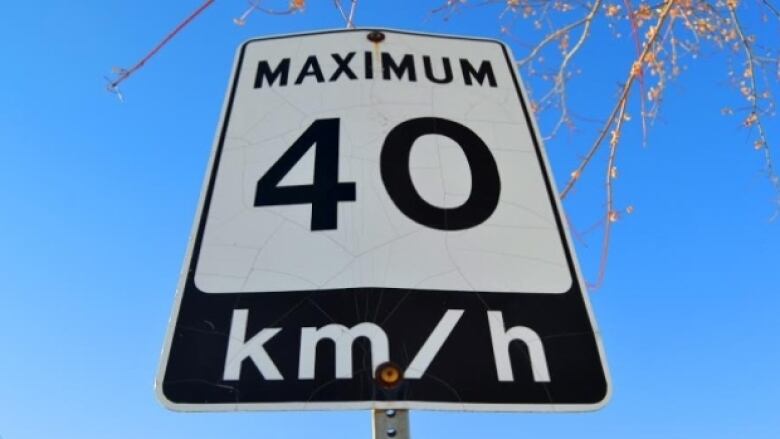Kitchener's pilot project may reduce speed limits in 3 neighbourhoods
City plans to reduce speed limit to 40 km/h in neighbourhoods in Huron, Doon and Idlewood area

You may have to drive bit slower in some Kitchener neighbourhoods startingthis fall.
The city is looking at possibly reducingthe speed limit from50 km/h to 40 km/h in three neighbourhoods in the Huron, Doon and Idlewood areas as part of a year-long pilot project.
Rather than focusing on individual streets, Aaron McCrimmon-Jones, manager of transportation planning for the city, said they want to take a neighbourhood-wide approach.
"We know that if you just do it on one stand-alone street, in many cases the changes to driver behaviour aren't as impactful," he said.
In an online survey, city staff asked for public feed back on reviewing traffic speed in neighbourhoods. Nearly60 per cent of respondents said lowering traffic speed was a priority in their neighbourhood.
The city says it will also be reducing the speed limit to 30 km/h in school zones within the proposed pilot neighbourhoods.
Staff are looking to reduce traffic speed in:
Ward 2:
- River Road East
- Ottawa Street North
- LacknerBoulervard
- Fairway Road North
Ward 4:
- Homer Watson Boulevard
- Conestoga College Boulevard
- New Dundee Road
- CaryndaleDrive
- Stauffer Drive
- Tilts Bush and Schneider Greenway area
Ward 5:
- Fisher-HallmanRoad
- Huron Natural Area
- Huron Road
McCrimmon-Jones said theneighbourhoods were picked based on the number of speed related complaints the city received from those areasover the past 24 months.
A report is set to be presented at a Community and Infrastructure Services Committee Monday.
Council will make a final decision during a council meeting Aug. 26. If approved, changes to speed limits couldtake place in the fall.
Pros and cons of reducing speed
McCrimmon-Jones says city staff are aware that the pilot project will comewith its benefits and challenges.
Reducing traffic speed in the proposed neighbourhoods could cause confusion fordrivers, which could deter them from following the new speed limits.
But reducing the speed limit by 10 km can decrease the risk of a collision and boosts a person's survival rate if they are struck by a vehicle,McCrimmon-Jones said.
"If avehicle travelling at 50 km an hourand there's a collision with a pedestrian, the likelihood of survival for the pedestrian is only 15 per cent," he said.
"If a vehicle is travelling at 40 km an hour, the likelihood of survival for the pedestrian jumps significantly to 75 per cent."
He adds other municipalities like Ottawa and Hamilton are also trying to reduce traffic speed in neighbourhoods.
If approved, the pilot will run until the fall of 2020.McCrimmon-Jones said staff will be collecting data during the pilot phase and present an update to council with recommendations.












_(720p).jpg)


 OFFICIAL HD MUSIC VIDEO.jpg)
.jpg)



























































































